 |
| Dr. Brittany U. Carter, Wellsource Director of Health & Research |
This article was originally published in the April 2019 issue of Population Health News.
Let's face it, health care isn't always a one-size-fits-all approach. Most population health interventions focus on improving the health of larger subsets of people. However, these interventions may not always be effective at improving health outcomes. Healthcare professionals must consider various factors--from genetics to lifestyle behaviors to social determinants--to more effectively target interventions and improve population health.
That's where precision medicine comes in.
Precision medicine is "an emerging approach for disease treatment and prevention that takes into account individual variability in genes, environment, and lifestyle for each person." It's a term often interchangeable with personalized or individualized medicine since it involves tailoring health care to an individual based on their unique characteristics.
Currently, the focus of precision medicine has been personalizing health care based on an individual's genetic makeup. Take women who are at a high-risk for breast cancer because they have a BRCA gene mutation. Evidence has shown that these women benefit from a more proactive approach toward prevention through more frequent breast cancer screening with different modalities and chemo prevention drugs (e.g. tamoxifen). Health professionals can take this initial step of personalization--such as identifying high-risk groups through genetic testing--to target interventions to specific characteristics of a subset of the population. And there will be immediate effects on population health by reducing the incidence of disease and other chronic conditions in these individuals.
But precision medicine can go beyond the genome. Addressing modifiable lifestyle behaviors that put individuals at risk for adverse health outcomes is another area where precision medicine can make a positive impact on population health. Often called precision lifestyle medicine, it involves identifying individuals who will maximally benefit from targeted lifestyle behaviors and health outcomes. Of course, an understanding of the individual's current lifestyle and their readiness to change is also necessary to further identify health risks, target interventions, and ensure adequate engagement at improving health. This self-reported information can be collected from individuals through health risk assessments.
So, whether decisions regarding health care are based on genetics or lifestyle behaviors, precision medicine is a way to meet individuals where they are in their wellness journey that will lead to improved population health.
To learn more about the readiness to change component of population health, download our white paper.








